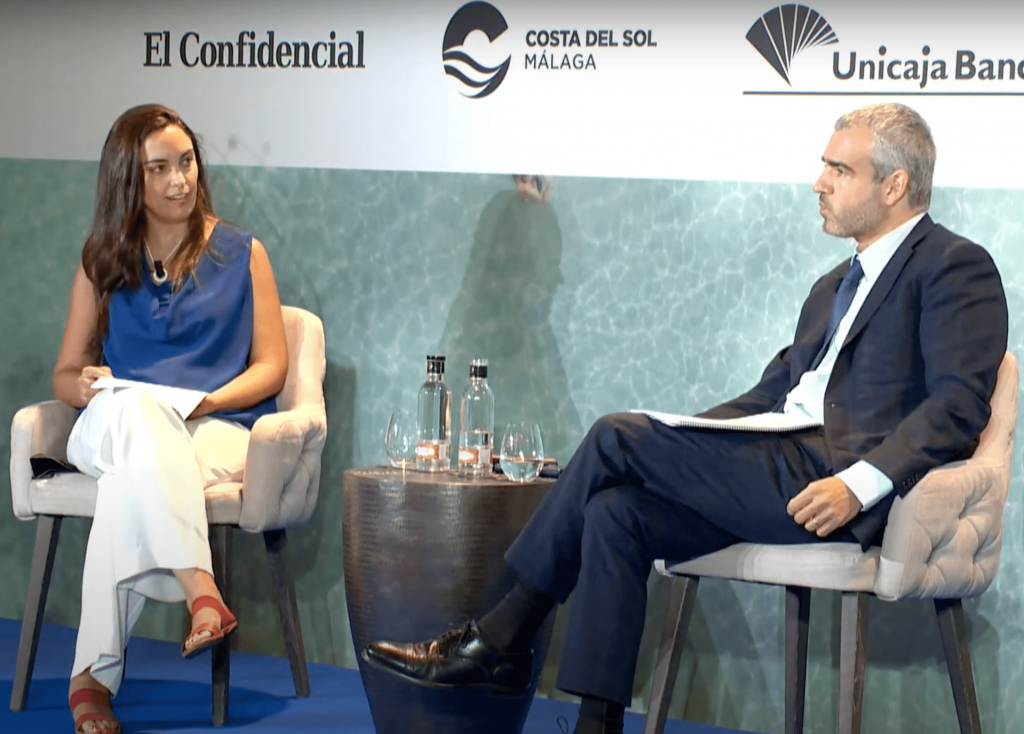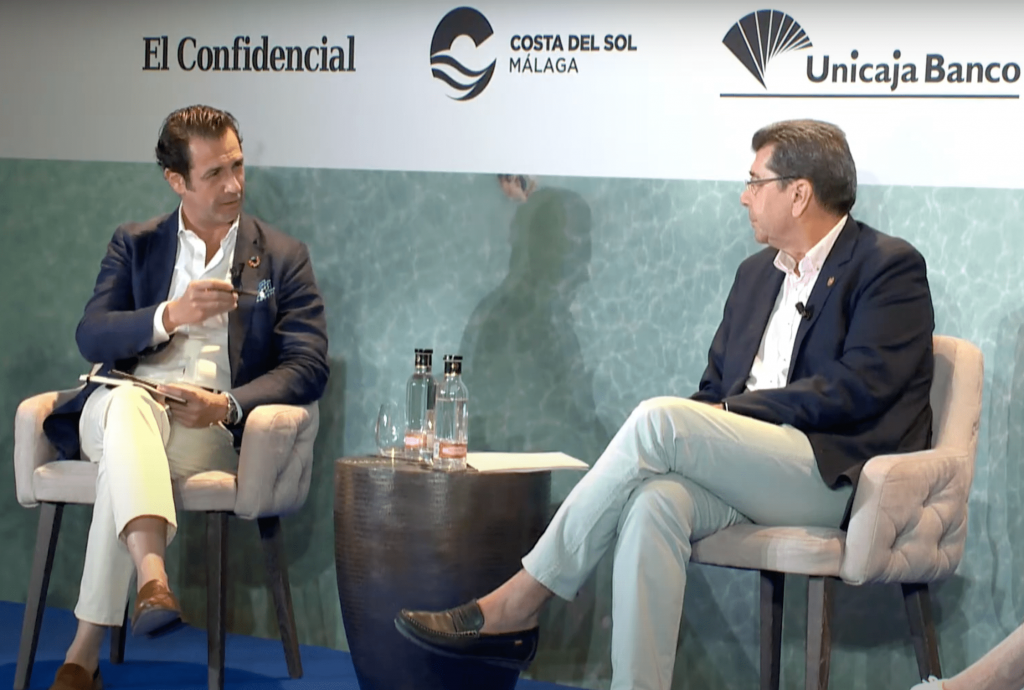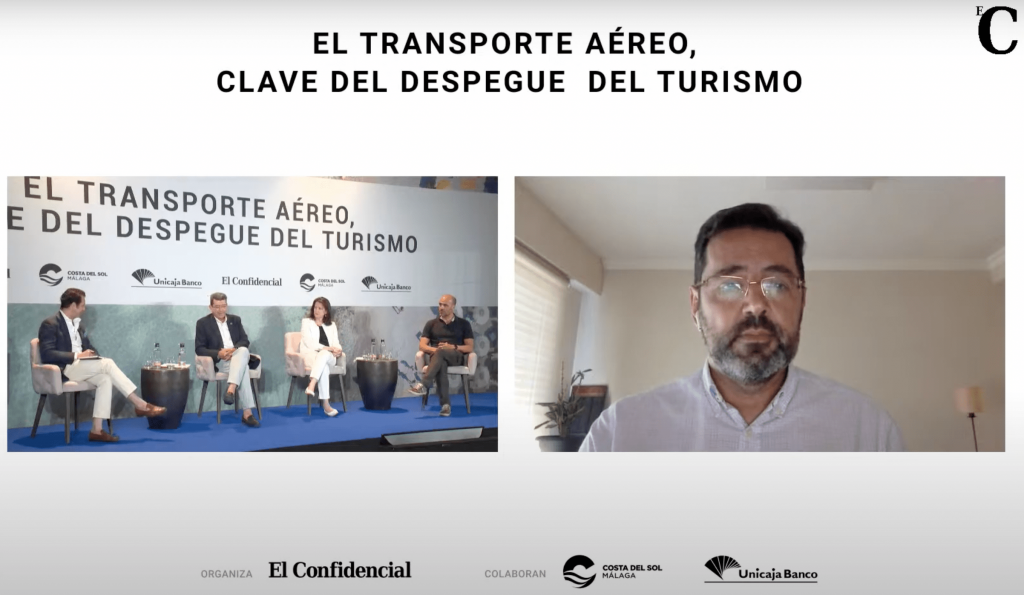In the last edition of the Costa del Sol Tourism Forum, held last Tuesday, July 13, the main focus was placed on the development of air transport as one of the engines of revitalization and recovery of tourist activity - the main one in country, creating hundreds of thousands of jobs and attracting millions of euros of investment. That said, under the title "Key air transport for tourism to take off", this fifth edition of the Forum aims to respond, among others, to such questions, such as the transformation of the sector to meet the needs of travelers or the challenges and challenges you may face.
On this occasion, there was the participation of the President of the Malaga Provincial Council, Francisco Salado, Costa del Sol Tourism Delegate, Margarita del Cid, President and CEO of Aena, Maurici Lucena. In addition, a round table has been organized to be able to share the professional opinions of the referents in tourism knowledge, including the dean of the Faculty of Tourism of the University of Malaga and director of the Manuel Molina Cathedra of Tourism Innovation, Antonio Guevara.
Thus, in the first instance, an interview was carried out with the President of Aena - Maurici Lucena, trying to cover the key issues for the current successful operation of the airline industry, the forecasts that are available for the near future and the reflections on the development potential of the Malaga-Costa del Sol Airport in particular. In this sense, first of all, Lucena trusts that the aviation and tourism sector in the Malaga region will not take long to recover, as Malaga had, even before the pandemic, important underlying assets, which will determine its trends for a long-term development.

From the perspective of his field of work, he comments that the current obligation of airports and the companies that operate in them is to adapt and prepare in these months to provide the best service and to know how to cover the needs and requirements of the demand and the authorities for when the industry picks up a fast pace again. In fact, he indicates that Spanish airports are already operating at full capacity, confirming the gradual recovery of the sector. The airlines, for their part, try to capture the maximum segment of consumers, promoting new purchasing and service provision policies, expanding the offer of existing routes with different schedules to stimulate demand.
Despite the fact that, as indicated, the industry has already entered the beginning of the end of the critical situation produced, there are still many latent risks to take into account when planning and organizing work. Among these, the health situation continues to be important, including new variants of the virus, unexpected outbreaks, the uneven rate of vaccination in different parts of the world, accompanied by constantly changing government legal regulations. At the same time, the President of Aena is optimistic, considering that, accompanied by vaccination, the tourist and air recovery will continue to grow in the second half of this year, hand in hand with advances in vaccination.
In addition, despite the fact that the pace of recovery may finally be more favorable to the sector, Aena considers that in the whole of Spain the total recovery will be achieved sometime between 2025 and 2026, insisting that the positive side consists of that, without a doubt, that recovery is going to come and when it reaches pre-pandemic levels, it will continue to grow.
Finally, Lucena highlights that in a very short time the airline sector has introduced technologies, measures that have made airports, within internationally recognized parameters, very safe. The profile of the journey through the airport has become different from before the pandemic, making the distances, the masks, the procedures on board the plane unlikely to transmit the virus during the trip. He also believes that the long-awaited harmonization at the level of international criteria of travel restrictions and requirements is becoming more and more prevalent and soon more possibilities will open up to make trips with peace of mind and safety.
Subsequently, a debate table called "Air connectivity: challenges and opportunities for the Costa del Sol in a globalized world" took place, where Antonio López de Ávila, CEO and founder of TDDS, participated as moderator of the table; Antonio Guevara Plaza, dean of the UMA Faculty of Tourism; Javier Gándara, president of the Air Lines Association (ALA); Carmen Alonso, head of Visa Business Development in Southern Europe; and Mariano Silveyra, vice president of public affairs for Cabify.

In his first intervention, Gándara assures that the airline sector is on the right path towards recovery, although he admits that the process is slow, referring to the fact that this year only one of every five passengers who did so in 2019 has yet flown. , this year operates approximately 60% of the flights of the volume of 2019, taking into account that these flights are not completely filled, taking on board today about 60% of the passengers of the 2019 totals.
On the other hand, despite the fact that occupancy and traffic remain at a minimum and taking into account the difficulties when preparing forecasts, airlines are making an effort to expand their route offerings and cover the maximum segment of travelers. potentials, albeit with a diminished frequency.
Last but not least, he insists on the need to finish digitizing and standardizing various processes between the airport, airlines and passengers: integrating applications to check documentation, travel permits and medical certificates.
For his part, Antonio Guevara suggests that tourism is broad and global. To reach conclusions about one situation or another and find an appropriate solution, not only a specific segment must be taken into account, such as, for example, air transport, but also the situation of the destinations in general, of the companies that operate in it and the size of these - in this way the recovery of the flows can be analyzed and estimated in an integral way. Therefore, he insists that any action or plan must be carried out from a global rather than a local perspective.
In addition, he considers that today it is not so much a matter of recovering the pre-pandemic indicators and numbers, but of taking advantage of these months of the marked crisis in the industry to reshape businesses, decide and define the profile of the tourist with whom he is going to work destiny. In this sense, he insists on the importance that the objectives of sustainable development are gaining, the three "Ps" - people, planet, prosperity, showing that the quality of an action is more relevant than the quantity it is going to produce.
Addressing the factor of digitization and the insertion of new technologies on a day-to-day basis in tourist destinations and companies, ensures that it is essential not only to make investments in digitization, but also that they are accompanied by a plan that helps to adapt to any circumstance of the environment. He also insists that technology itself is not a solution, but rather a means to interconnect different areas of activity and different processes. “Destinations have to be able to see and analyze what is going on inside - it is very important to have knowledge of what is happening in each destination, to know its reality. For this we have to have integrable and interoperable tools that help us share information and extract that knowledge. We need absolute cooperation and treat tourism in a coordinated way. " - Guevara comments.
Along the same lines, Mariano Silveyra confirms that competitiveness in the tourism sector is increasingly high and we cannot stay at the levels achieved years ago, because today the achievements of the past are no longer enough to stand out. “Tourism is a clear example of an experience that has known how to evolve, innovate throughout the value chain and, regardless of the pandemic, continues to develop certain consumer trends. The question is how you can put that innovation at the foot of the experience. " - Silveyra explains. He also insists that today it is crucial for companies and destinations to face the quality of the services to be provided, the quality of the experience, how we can take advantage of situations such as the pandemic, it must be seen as an opportunity to be able to review the operation of the industry, of the destinations. "The best we can do in the face of change and uncertainty is to be prepared, to be close to the user, to understand the opportunities we have to communicate with him, and to simplify his life." - clarifies.

For her part, from the perspective of the transactions industry, Carmen Alonso assures that the key to the financial success of a business now lies in the trust of the person who is buying and paying. In the same way, the need for more extensive and detailed information has grown, - the client today needs to know every detail, what will happen in each situation that may occur. In this sense, it is highly relevant to invest in Artificial Intelligence, ensure the security of transaction data and know how to transmit it to the client. In the particular case of Spain, she explains, despite the fact that before the pandemic our country was not among the most advanced in terms of electronic or contactless transactions and payments. However, throughout the pandemic, it has taken a bigger leap than the countries around it in terms of e-commerce transactions and the reduction of the use of cash, which, in turn, generates a lot of confidence in travelers from outside.
The full Forum can be viewed through the following link: https://www.elconfidencial.com/espana/andalucia/2021-07-09/transporte-aereo-turismo-bra_3176399/

